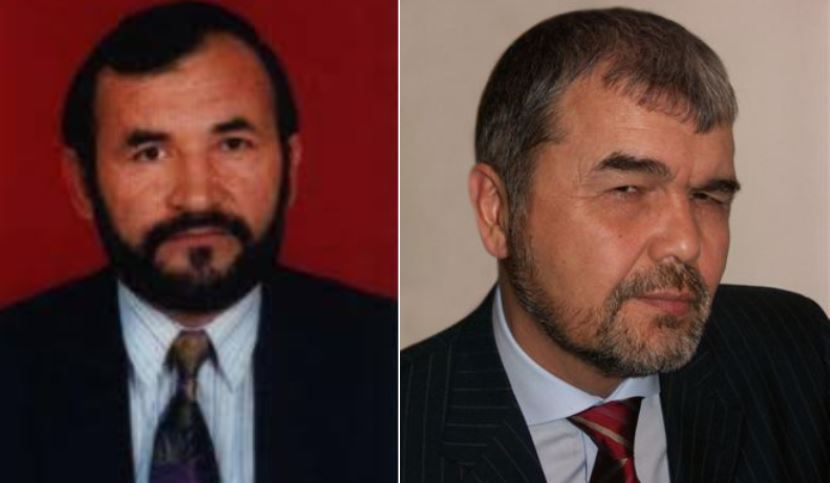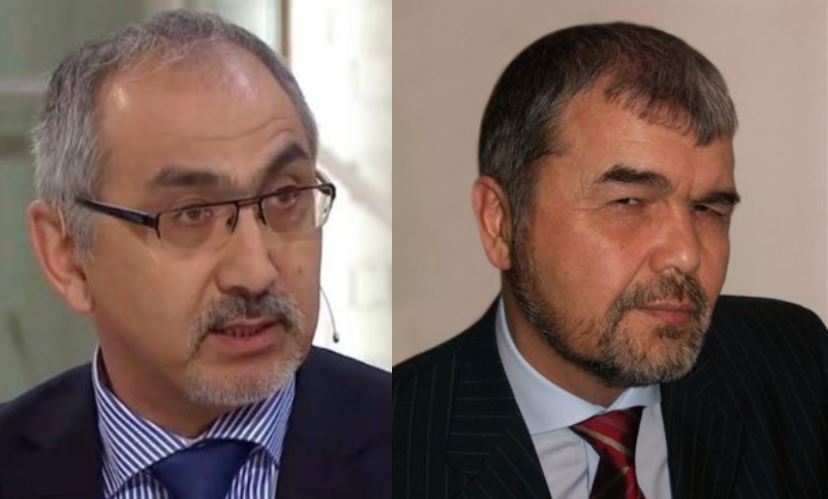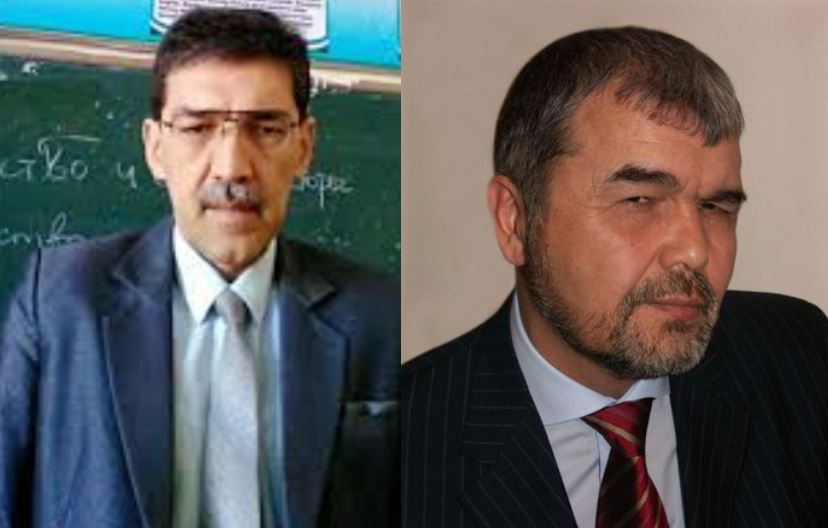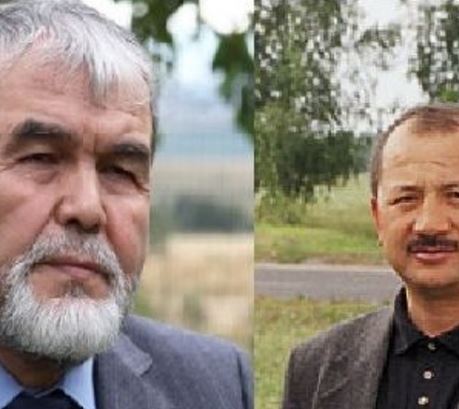US, EU Should Press for Accountability, End to Rights Abuses
May 13, 2014
A man mourning at the funeral for his brother, who was killed during the Andijan events.
The long shadow of Andijan and the crackdown the government unleashed in its wake still hang over Uzbekistan’s people and their government’s relations with the world. Until President Karimov ensures accountability for the killings and stops harassing anyone who dares to speak openly about Andijan, it will be impossible for Uzbekistan’s international partners to take his repeated claims of reform seriously.
Steve Swerdlow, central Asia researcher
(Berlin) – The United States and the European Union should press the Uzbek government for an independent, international inquiry into the massacre by government forces of hundreds of mainly peaceful protesters in the eastern city of Andijan on May 13, 2005. Nine years after the massacre, the government of Uzbekistan has rejected recommendations by numerous bodies, including the United Nations Human Rights Council and the UN Committee against Torture,to allow an inquiry.
Uzbek government forces opened fire on the Andijan protesters indiscriminately and without warning. No one has been held accountable, nor has the Uzbek government ceased its relentless persecution and imprisonment of people it suspects of having ties to the protest.
Following the massacre, the Uzbek government cracked down ferociously on independent civil society and anyone believed to have either participated in or witnessed the events. Over the years since, the government has also effectively closed the country to international scrutiny by forcing the closure of international organizations, including media outlets, and refusing to allow UN human rights monitors to visit the country.
“The long shadow of Andijan and the crackdown the government unleashed in its wake still hang over Uzbekistan’s people and their government’s relations with the world,” said Steve Swerdlow, central Asia researcher at Human Rights Watch. “Until President Karimov ensures accountability for the killings and stops harassing anyone who dares to speak openly about Andijan, it will be impossible for Uzbekistan’s international partners to take his repeated claims of reform seriously.”
Akmal Saidov, head of the Uzbek delegation, told both the UN Human Rights Council during the country’s Universal Periodic Review in September 2013 and the UN Committee against Torture during its October review, “The issue of Andijan [massacre] is closed!” Saidov categorically rejected the numerous recommendations by governments to allow an independent, international inquiry to investigate the killings.
“The issue of Andijan is not ‘closed’ for the victims’ families, those the government continues to unlawfully imprison, or the countless other citizens who live in fear of peacefully expressing opinions that differ from the Uzbek government line,” Swerdlow said. “No amount of denying Andijan happened, no matter how loudly or how frequently, will make it go away.”
The Uzbek government maintains a deplorable human rights record, imprisoning, persecuting, and intimidating human rights activists, journalists, peaceful political opposition activists, independent Muslims, and anyone else it perceives to be a critic for their peaceful exercise of free expression.Many have been subjected to torture or ill-treatment in pretrial custody or prison.
Human Rights Watch has recently confirmed the extension of a prison sentence for Dilorom Abdukodirova, a witness to the massacre who fled to Australia but was imprisoned on her return to Uzbekistan in 2010 following an unfair trial closed to the public. Her 10-year sentence was arbitrarily extended in a closed trial by another eight years for unspecified “violations of prison rules.”
In another recent case, the family of a Fergana-based human rights defender Ganikhon Mamatkhanov reported to Human Rights Watch that instead of being released in March 2014 as was scheduled following a 5-year prison term, he remains in jail as his sentence was extended. Mamatkhanov, along with other imprisoned human rights defenders such as Azam Farmonov and Abdurasul Khudoynazarov, was jailed as a part of the crackdown in the aftermath of Andijan.
Prison authorities informed Mamatkhanov’s son, Jalolidin, that the extension was based on the fact that Mamatkhanov had “gone to the bathroom without permission” three times. For these “violations of prison rules,” prison authorities also punished Mamatkhanov by placing him in solitary confinement.
Isroiljon Kholdorov, the former chairperson of the Andijan branch of Ezgulik, the only registered human rights organization in the country, was imprisoned for six years in February 2007 for speaking to the international media about mass graves of protesters in and around Andijan. In 2012 Kholdorov was sentenced to an additional three years, ostensibly for such infractions as “not getting up when called” and refusing to lift a heavy object when asked to by a prison guard.
Akram Yuldashev, a prominent religious figure and philosopher, has been imprisoned since 1998 on charges including “anti-constitutional activity” that appear to be politically motivated. Although he had long been in prison on other charges, authorities asserted following the Andijan massacre that Yuldashev had orchestrated the events leading up to the killings, including directing a group of his followers over a cell phone to break a group of businessmen on trial in Andijan out of prison. Yuldashev’s son told Human Rights Watch that the family has been denied all contact with him since 2009 and has no information about his whereabouts, nor do they know whether he is still alive or has died in custody.
“The mistreatment of prisoners and arbitrary extension of their sentences without due process shows the particular cruelty of Uzbekistan’s criminal justice system,” Swerdlow said. “Repeatedly extending political prisoners’ sentences, some of whom have been behind bars for more than 20 years, effectively condemns them to die behind bars.”
Uzbekistan’s international partners should reiterate their calls to Tashkent to address its human rights record, including by allowing an investigation into Andijan and releasing all those whose detention is unlawful and arbitrary under international standards, Human Rights Watch said.
Members of the United Nations Human Rights Council should mark their concern about the systematic human rights violations in Uzbekistan and the government’s continued refusal of access to no fewer than 11 UN monitors by establishing a dedicated, country-specific mechanism to ensure sustained scrutiny and reporting on the human rights situation in Uzbekistan.
https://www.hrw.org/news/2014/05/12/uzbekistan-andijan-massacre-case-not-closed





